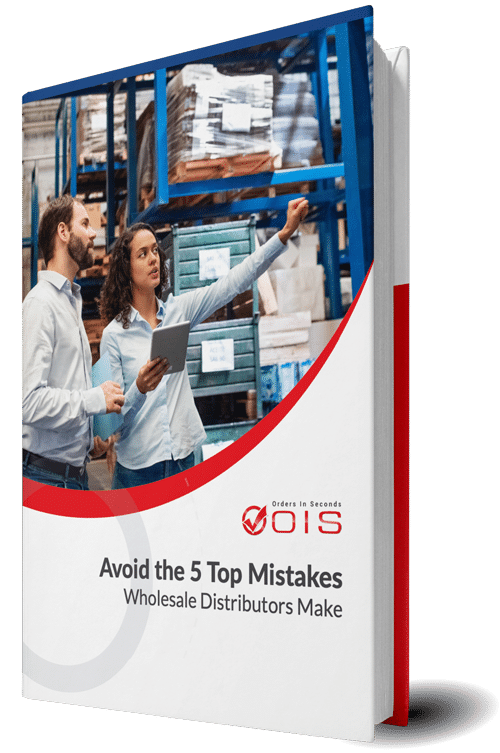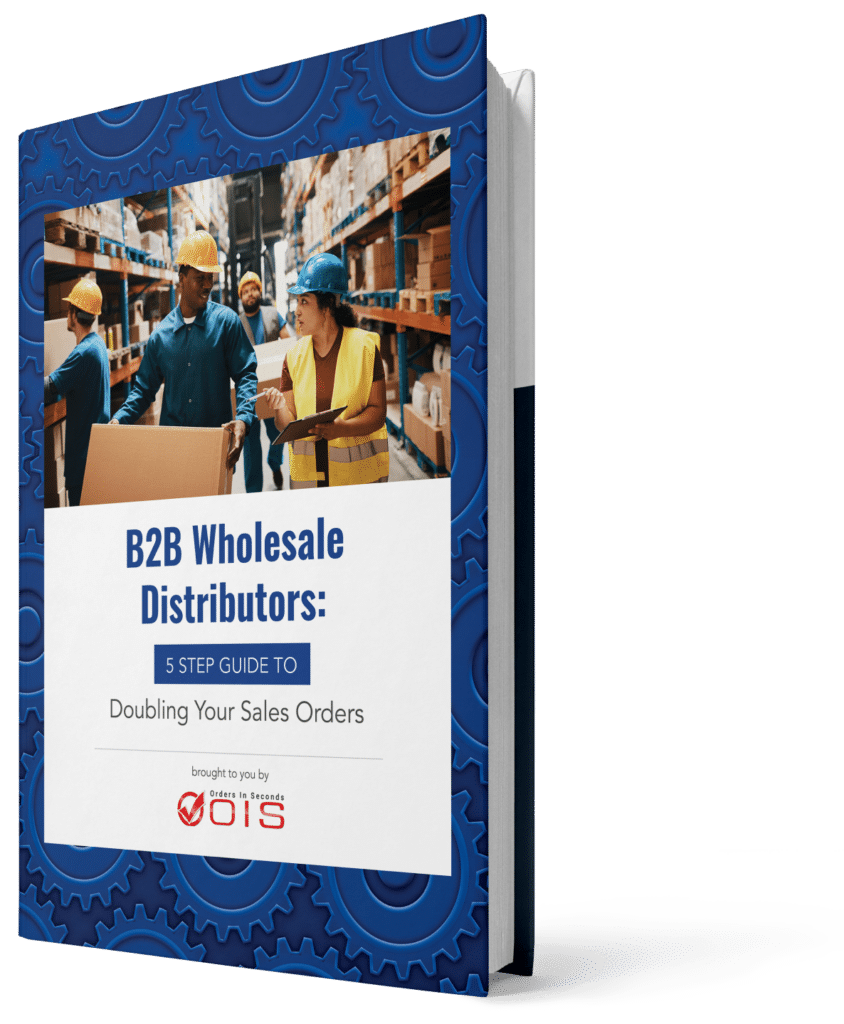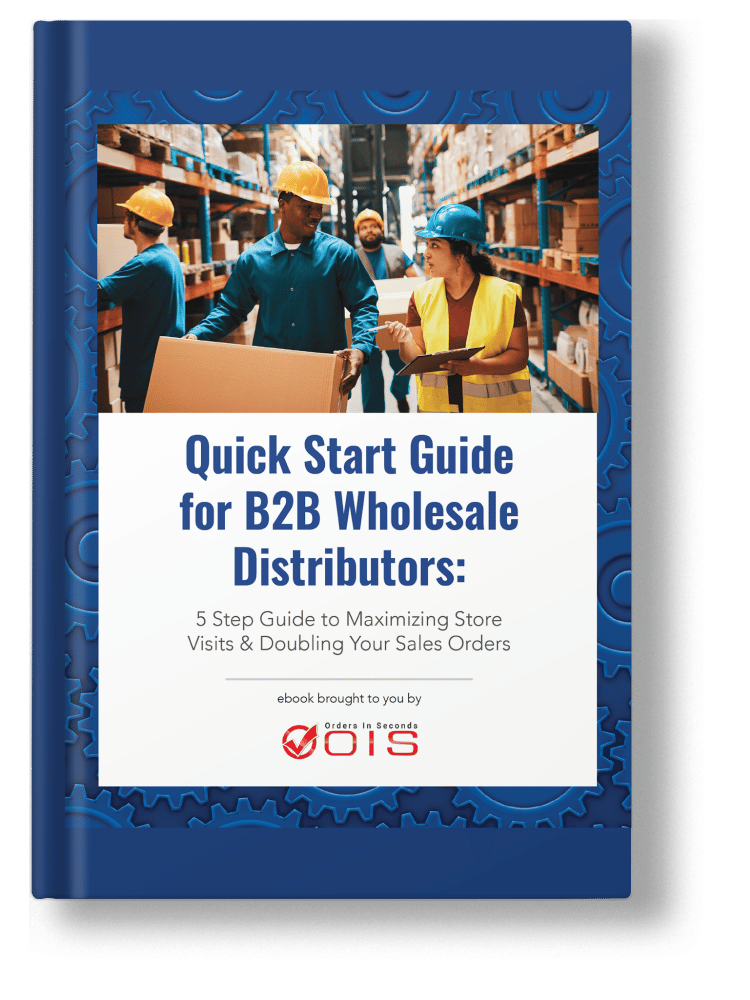Key Takeaways
Searching for the best B2B eCommerce platform to enhance your business online? This guide explores essential platforms, their features, and key benefits to help you choose the right one.
- B2B eCommerce platforms are essential for facilitating transactions between businesses, offering specialized features like custom pricing, bulk ordering, and integrated customer portals that cater to the unique needs of business customers.
- Implementing a B2B eCommerce platform can significantly enhance operational efficiency, improve customer experiences, and increase sales and revenue through features like automated workflows, real-time order tracking, and 24/7 ordering capabilities.
- When selecting a B2B eCommerce platform, businesses should consider key features such as ERP integration, custom pricing and catalogs, and robust security measures, while also accounting for the varying costs associated with subscription fees, implementation, and maintenance.
Table of Contents
- Understanding B2B eCommerce Platforms
- Benefits of Implementing a B2B eCommerce Platform
- Key Features to Look for in a B2B eCommerce Platform
- Top B2B eCommerce Platforms for 2024
- Cost Considerations for B2B eCommerce Platforms
- Building a Business Case for a B2B eCommerce Platform
- Embracing Digital Transformation in B2B
- Summary
- Frequently Asked Questions
- Ready to Elevate Your B2B Operations with an eCommerce Platform?
Understanding B2B eCommerce Platforms

B2B eCommerce platforms are specialized online marketplaces designed to facilitate transactions between businesses. Unlike B2C platforms that cater to individual consumers, B2B platforms are tailored to meet the needs of manufacturers, wholesale distributors, and retailers. These platforms play a crucial role in modern business operations by providing analytics and insights into customer behavior, preferences, and purchasing patterns, helping businesses make informed decisions and scale as they grow.
Selecting the appropriate B2B ecommerce order management platform is vital for business success. It streamlines operations, broadens market reach, and improves customer engagement. As businesses evolve, the right platform can be a game-changer, transforming how they operate and compete in the marketplace.
Differences Between B2B and B2C Platforms
B2B eCommerce platforms differ significantly from their B2C counterparts. One of the primary distinctions lies in the complexity of the buying process. B2B transactions often involve multiple decision-makers and require features like custom pricing, bulk ordering, and customer-specific catalogs. These specialized features cater to the unique needs of business customers, who typically purchase in larger volumes and require more detailed product information.
Another key difference is the presence of customer portals that are locked for users with login credentials, ensuring that sensitive business data is secure and accessible only to authorized personnel. This added layer of security is crucial for maintaining trust and managing complex business relationships.
Furthermore, B2B platforms often integrate with other enterprise systems, such as ERP and CRM, to streamline operations and provide a seamless experience across different sales channels.
Core Functions of B2B eCommerce Platforms
The core functions of B2B eCommerce platforms are designed to meet the specific needs of business customers. Custom pricing and bulk ordering capabilities are essential features that allow businesses to offer tailored shopping experiences and manage large transactions efficiently. These platforms enable businesses to maintain customer-specific catalogs, streamlining the purchasing process and enhancing the overall customer experience.
Moreover, B2B eCommerce platforms, including an enterprise ecommerce platform, include features like seamless ERP integration, enhancing data accuracy and operational efficiency. By automating inventory management and order processing, these platforms help businesses reduce errors, speed up fulfillment, and ultimately provide a better service to their customers.
Benefits of Implementing a B2B eCommerce Platform

Implementing a B2B eCommerce platform offers numerous benefits that can transform business operations and client engagement. Transitioning to digital solutions enables businesses to boost efficiency, lower costs, and remain competitive in evolving markets. These platforms provide a comprehensive suite of tools that enable businesses to tap into new customer segments and expand their market reach.
The shift to B2B eCommerce is not just about financial returns; it also brings operational improvements and strategic advantages. Enhanced customer experiences, streamlined order processing, and access to data-driven insights are just a few of the many benefits that these platforms offer.
As businesses continue to evolve, adopting a B2B eCommerce platform becomes essential for long-term success.
Increased Sales and Revenue
A significant advantage of B2B eCommerce platforms is their ability to increase sales and revenue. Offering 24/7 online ordering allows businesses to receive orders anytime, increasing sales opportunities. Customizable order templates further streamline the purchasing process, making it easier for customers to place orders and boosting sales potential.
Moreover, the B2B eCommerce sector is experiencing robust growth, with a projected compound annual growth rate (CAGR) of 18.30%, expected to reach over $18.97 trillion by 2028. This growth highlights the effectiveness of eCommerce solutions in driving sales and accessing new markets. The COVID-19 pandemic has also accelerated the adoption of digital tools in B2B, leading to a notable increase in e-procurement and marketplace sales.
If mistakes are holding back your wholesale distribution business, download our free eBook “Avoid the Top 5 Mistakes Wholesale Distributors Make” and discover key strategies to optimize your operations for success!

Avoid the Top 5 Mistakes Wholesale Distributors Make
Enhanced Customer Experience
Enhancing the customer experience is a key benefit of B2B eCommerce platforms. Personalized pricing, tailored product recommendations, and self-service options empower customers to manage their orders independently and efficiently. These features not only enhance customer satisfaction but also build loyalty by providing a seamless and user-friendly interface.
B2B platforms also offer real-time order tracking and tailored communications, which facilitate better customer interactions and improve overall satisfaction. Features like abandoned cart recovery help businesses recover lost sales, further enhancing the customer experience.
Operational Efficiency
Operational efficiency is another significant benefit of implementing a B2B eCommerce platform. These platforms automate workflows, improving order processing speeds and accuracy. By reducing manual errors and enhancing workflow efficiency, businesses can significantly lower their operational costs and improve speed in order fulfillment.
A unified order management system is essential for B2B businesses, as it prevents disorganization and confusion, ensuring better inventory management and order fulfillment. This streamlined approach not only enhances operational efficiency but also contributes to overall business success by helping to streamline order processing.
Key Features to Look for in a B2B eCommerce Platform

When selecting a B2B eCommerce platform, it is crucial to consider the essential features that streamline sales, improve customer acquisition, and enhance the buying experience. Custom pricing, user roles, and ERP integration are some of the key functionalities that businesses should look for. These features not only cater to the specific needs of B2B customers but also ensure a seamless and efficient workflow.
Additionally, security measures such as credit card and customer data protection, fraud protection, and SSL certificates are vital considerations. These features protect sensitive business data and build trust with customers.
Integration of product and pricing information across all sales channels ensures that businesses can provide relevant, up-to-date product information at every touchpoint.
Custom Pricing and Catalogs
Custom pricing and catalogs are essential for meeting the diverse needs of B2B customers. These features enable businesses to offer tailored shopping experiences by providing unique products and pre-negotiated pricing. Buyers can request quotes for individual products or product lists, allowing for personalized pricing and fostering trust and clarity through revenue-based contracts.
Custom catalogs allow businesses to create and manage customer-specific catalogs, delivering personalized experiences that cater effectively to different customer groups. Together, these features provide a dynamic B2B shopping environment that enhances customer satisfaction and loyalty.
User Roles and Permissions
Defining user roles and permissions is crucial for operational efficiency in B2B eCommerce platforms. Allowing role-based access to account information ensures users have the appropriate permissions to perform their functions effectively. This approach not only enhances security but also streamlines business operations.
Seamless ERP Integration
Seamless ERP integration is a critical feature for B2B eCommerce platforms as it helps maintain data accuracy and enhances operational efficiency. Integration with ERP systems automates numerous processes, reduces administrative workload, and improves inventory management. This integration leads to fewer errors and faster order fulfillment, ultimately improving customer satisfaction.
Moreover, seamless integration ensures that all business operations are synchronized, providing a comprehensive solution that supports business growth and success. This feature is particularly important for larger enterprises that require robust and scalable solutions to manage their complex business needs.
Top B2B eCommerce Platforms for 2025

Selecting the right B2B eCommerce platform is crucial for streamlining business operations and enhancing online presence. The best ecommerce platform for 2025 has been chosen based on its ability to meet specific B2B needs, offer robust functionalities, and provide seamless integrations. These platforms enable businesses to create efficient and scalable eCommerce solutions that drive growth and success.
In this section, we will explore three of the best B2B eCommerce platforms for 2025: BigCommerce, Adobe Commerce, and OIS eCommerce. Each of these platforms offers unique features and capabilities that cater to different business requirements, making them ideal choices for various industries.
BigCommerce
BigCommerce is a powerful B2B eCommerce platform that offers a wide range of features to meet and exceed buyer expectations. The platform allows customers to create corporate account profiles and set up multiple tiers of buyers, providing a tailored shopping experience on their ecommerce site. Administrators can gain insights into each user’s budget and order status through their dashboard, enhancing customer relationship management.
BigCommerce offers various pricing plans, including a Pro plan subscription for $399/month and an enterprise option tailored for larger B2B businesses looking for more customization and support. These options make BigCommerce a versatile choice for businesses of all sizes, providing extensive customization and support to drive business success.
Adobe Commerce
Adobe Commerce, formerly known as Magento Commerce, is another top B2B eCommerce platform for 2024. Owned by Adobe, this platform integrates seamlessly with other Adobe solutions, offering personalized experiences that enhance customer interactions. Adobe Commerce supports both B2B and B2C business models, making it a versatile choice for various markets.
The platform provides advanced customization and scalability to meet complex business needs, but it requires a skilled in-house developer or development team for effective maintenance. This combination of flexibility and robust capabilities makes Adobe Commerce an ideal choice for businesses looking to create a scalable and customized eCommerce solution.
OIS Commerce
OIS eCommerce is a B2B eCommerce platform meticulously engineered to streamline the entire order-to-fulfillment process. The OIS eCommerce solution empowers businesses with rapid order creation, real-time inventory visibility, and automated order processing, ensuring unparalleled efficiency.
Unlike generic platforms, OIS eCommerce is exclusively tailored to B2B requirements, offering advanced features such as quote management, purchase order processing, and customer-specific pricing. With intuitive design and seamless integrations with ERP systems, businesses can effortlessly manage complex B2B operations, driving significant productivity gains and customer satisfaction.
When selecting a B2B eCommerce platform, understanding the associated costs is crucial. The cost range can vary significantly, from free open-source options to expensive enterprise solutions that may cost hundreds of thousands or even millions of dollars per year.
Businesses must consider various factors, including:
- complexity
- functionality
- scale
- order volumes
- the number of users
These factors can all influence the overall cost.
In this section, we will delve into the cost considerations, focusing on subscription fees and licensing, implementation and maintenance costs, and the total cost of ownership. Understanding these aspects will help businesses make informed decisions and manage their budgets effectively.
Subscription Fees and Licensing
Most B2B eCommerce platforms operate on a subscription model, with typical plans starting around $39/month. For example, Shopify Plus starts at $2,500/month, offering access to advanced features. Additionally, some platforms may have a one-time licensing fee, such as the Ultimate plan priced at $6,500/year.
Businesses should also consider additional costs, such as custom development, transaction, and processing fees. You can acquire a B2B Multi Seller Marketplace extension for OpenCart. The one-time payment is $299.
These expenses can add up, so it is essential to account for all potential costs when budgeting for a B2B eCommerce platform.
Implementation and Maintenance Costs
Implementation and ongoing maintenance costs are important considerations when selecting a B2B eCommerce platform. Credit card payment transactions typically incur a fee of 2.9%, while using ACH payment systems can reduce fees to 0.5% with a $10 cap. Additionally, payment gateways can also influence transaction costs.
Understanding these payment fees is crucial for budgeting and managing the total cost of ownership for B2B eCommerce platforms.
Total Cost of Ownership
The total cost of ownership for B2B eCommerce platforms includes not just the initial fees but also ongoing expenses that accumulate over time. Key components of total cost of ownership are platform fees, development costs, maintenance, integrations, updates, and training costs. For example, platforms like SAP Hybris are noted for having a high total cost of ownership, which businesses need to consider when evaluating options.
Quantifying the long-term financial benefits of a B2B eCommerce platform can help justify the initial investment. Demonstrating the potential for increased sales, improved operational efficiencies, and enhanced customer relationships helps build a strong case for adopting a B2B eCommerce solution.

Developing a compelling business case is crucial for organizations transitioning to B2B eCommerce. A well-constructed business case highlights tangible ROI, operational efficiencies, and cost savings, making it easier to secure buy-in from stakeholders. Beyond financial gains, the business case should focus on long-term strategic benefits like scalability and agility.
In this section, we will explore how to demonstrate ROI, highlight operational efficiencies, and enhance customer relationships. These elements are essential for building a robust business case that showcases the comprehensive benefits of adopting a B2B eCommerce platform.
Demonstrating ROI
B2B eCommerce platforms enable businesses to generate predictable income through long-term customer relationships. By leveraging data-driven insights, businesses can optimize their marketing campaigns and sales processes, leading to increased revenue and business growth. Additionally, the predictable nature of B2B transactions helps businesses forecast income more accurately, contributing to overall business success.
Highlighting the potential for increased sales and reduced operational costs can help demonstrate the ROI of a B2B eCommerce platform. By showcasing these financial benefits, businesses can build a strong case for investing in digital solutions that drive long-term growth and profitability.
Highlighting Operational Efficiencies
Operational efficiency is crucial for businesses aiming to streamline processes and reduce costs. B2B eCommerce platforms can automate tasks, enhance workflow efficiency, and optimize inventory management, leading to significant cost savings. By reducing manual errors and improving order processing speeds, these platforms contribute to a more agile and responsive business environment.
Improved operational efficiency not only enhances financial performance but also supports business growth. Showcasing these efficiencies helps build a compelling case for adopting a B2B eCommerce platform that ensures long-term success.
Enhancing Customer Relationships
B2B eCommerce platforms improve customer experience through personalized product recommendations and self-service portals. These features empower customers to manage their orders independently, enhancing satisfaction and loyalty. Leveraging customer data allows businesses to offer tailored communications and personalized pricing, strengthening customer relationships.
Enhanced customer relationships contribute to long-term business success by fostering loyalty and repeat business. By highlighting the benefits of improved customer interactions, businesses can build a strong case for investing in a B2B eCommerce platform that enhances customer satisfaction and drives growth.
Embracing Digital Transformation in B2B
Adapting to digital solutions in B2B is crucial for staying competitive and setting the stage for future growth. The global B2B eCommerce market is projected to grow significantly, highlighting the importance of digital transformation for businesses. Embracing digital solutions enables businesses to enhance their operations, improve customer engagement, and drive long-term success.
In this section, we will explore the trends driving B2B digital adoption and the common challenges businesses face during this transition. Understanding these aspects will help businesses navigate the digital landscape and leverage opportunities for growth.
Trends Driving B2B Digital Adoption
By 2025, it is estimated that 80% of sales interactions in B2B will take place through digital channels. This shift is driven by the increasing demand for personalized and seamless purchasing experiences. As businesses recognize the benefits of digital solutions, more companies are adopting B2B eCommerce platforms to enhance their operations and customer engagement.
Digital transformation in B2B is also fueled by rapid technology growth and the need for scalability. Businesses must stay ahead of these trends to remain competitive and capitalize on new opportunities for growth. By adopting digital solutions, businesses can streamline operations, improve customer experiences, and drive long-term success.
Overcoming Common Challenges
Resistance to change among staff can be a major hurdle in the implementation of digital solutions within B2B organizations. Successful digital transformation requires change management and collaboration between business and IT teams.
Fostering a culture of innovation and offering necessary training and support enables businesses to overcome challenges and effectively embrace digital transformation.
Summary
In conclusion, B2B eCommerce platforms are essential for modernizing business operations and staying competitive in today’s market. By understanding the key features, benefits, and cost considerations, businesses can make informed decisions and build a compelling case for adopting digital solutions. The top platforms for 2024, including BigCommerce, Adobe Commerce, and OIS eCommerce, offer robust functionalities that cater to various business needs.
Embracing digital transformation is crucial for long-term success. By leveraging B2B eCommerce platforms, businesses can enhance customer experiences, streamline operations, and drive growth. As the market continues to evolve, adopting these platforms will be vital for staying ahead and achieving business success.
Frequently Asked Questions
B2B eCommerce platforms are online marketplaces tailored for business-to-business transactions, providing services such as custom pricing, bulk ordering, and personalized catalogs to enhance the purchasing experience. These platforms streamline the buying process for businesses.
B2B eCommerce platforms differ from B2C platforms primarily by serving business customers with more intricate purchasing processes, involving multiple decision-makers and larger transaction volumes, compared to the simpler direct sales to individual consumers in B2C. This distinction highlights the unique operational and transactional requirements of each model.
What are the benefits of implementing a B2B eCommerce platform?
Implementing a B2B eCommerce platform leads to increased sales and revenue, enhanced customer experiences, and improved operational efficiency through automation and seamless ERP integration. These benefits collectively position businesses for greater success in the digital marketplace.
Businesses should prioritize custom pricing, user roles and permissions, and seamless ERP integration in a B2B eCommerce platform to enhance operational efficiency and data accuracy. These features are crucial for effectively managing complex transactions and user interactions.
The best B2B eCommerce platforms for 2025 include BigCommerce, Adobe Commerce, and OIS eCommerce, each providing distinct features tailored to diverse business requirements. Selecting the right platform will significantly enhance your business operations and online presence.
Ready to Elevate Your B2B Operations with an eCommerce Platform?
Explore the power of top B2B eCommerce platforms and transform your business. Among the best options for 2025, OIS eCommerce stands out for its specialized features designed to streamline wholesale distribution. With real-time inventory visibility, automated order processing, and customer-specific pricing, OIS eCommerce offers a tailored solution that enhances operational efficiency and customer satisfaction.
Don’t get left behind—schedule a FREE demo today.





